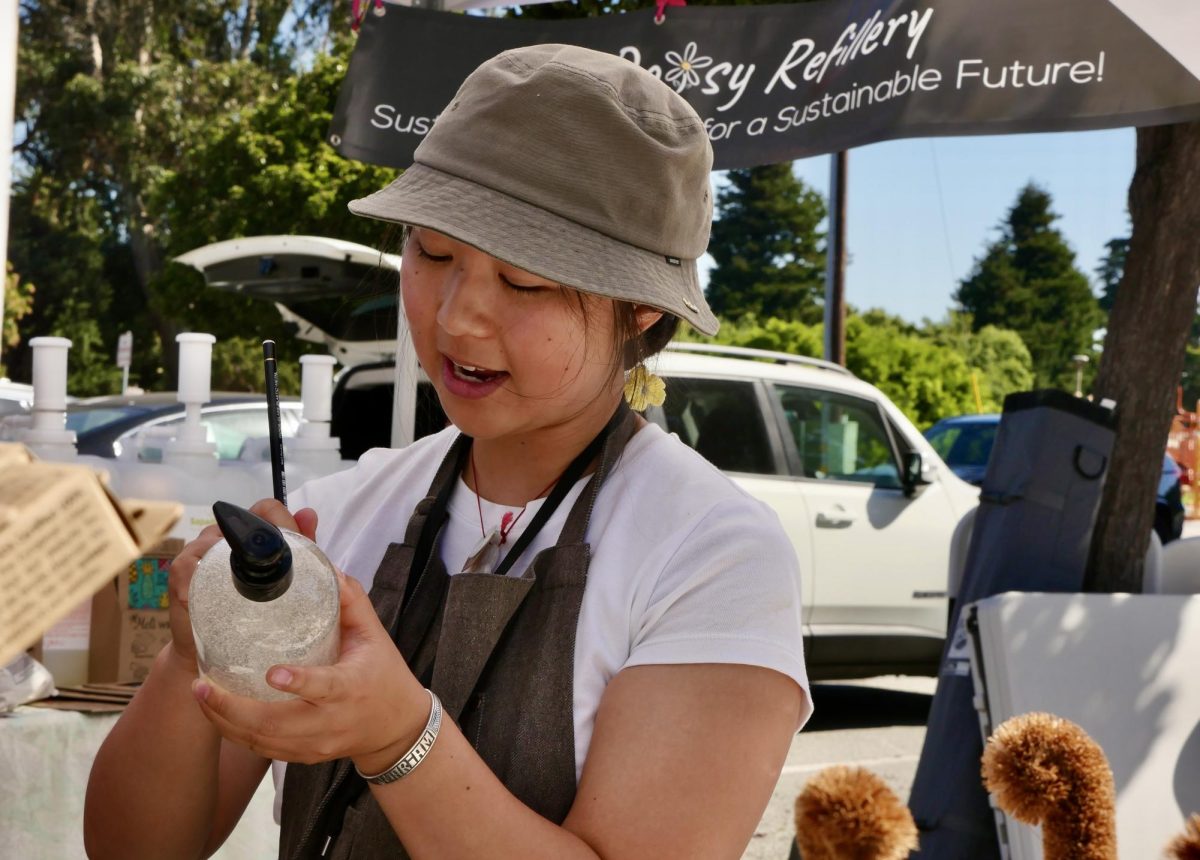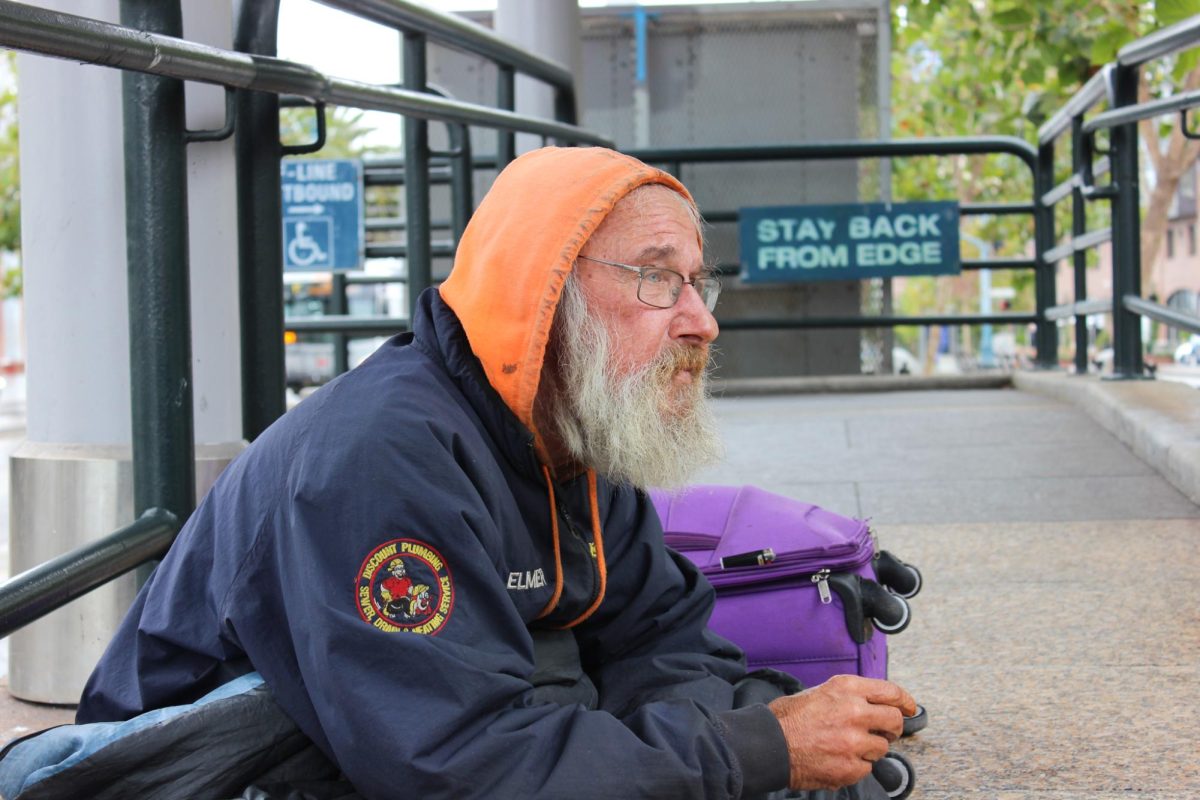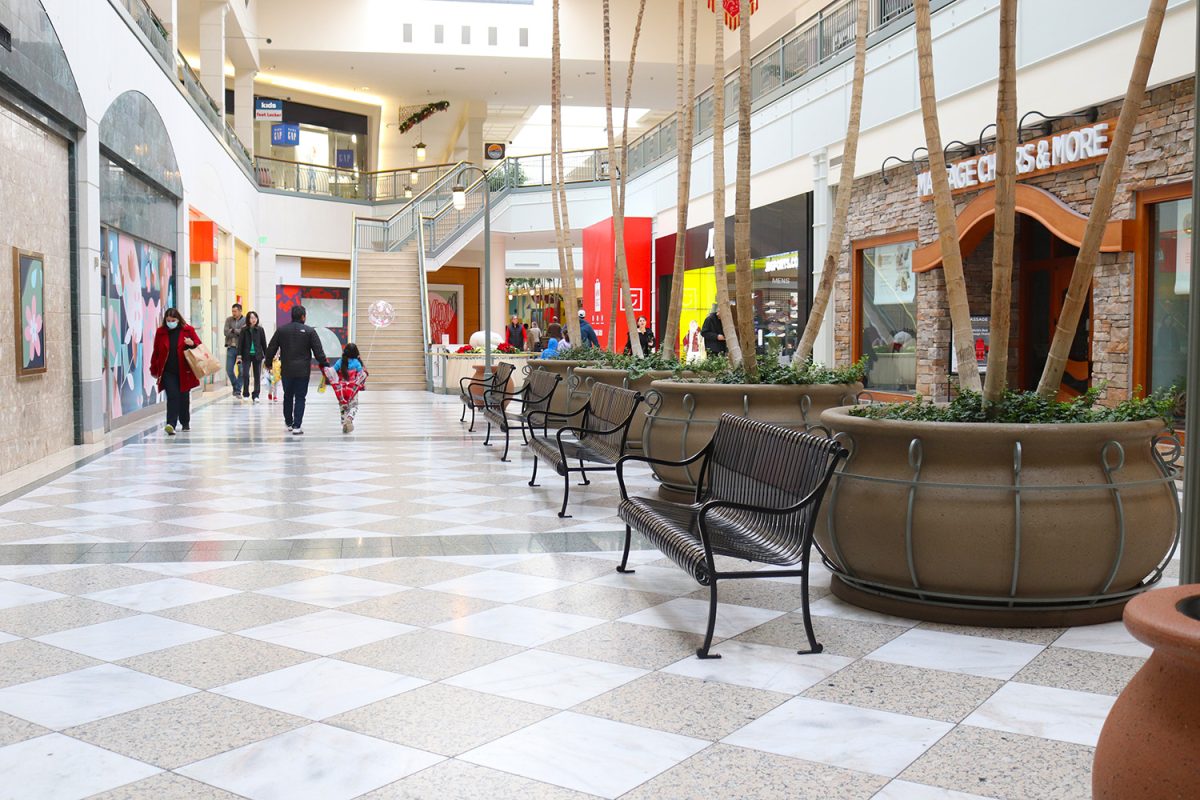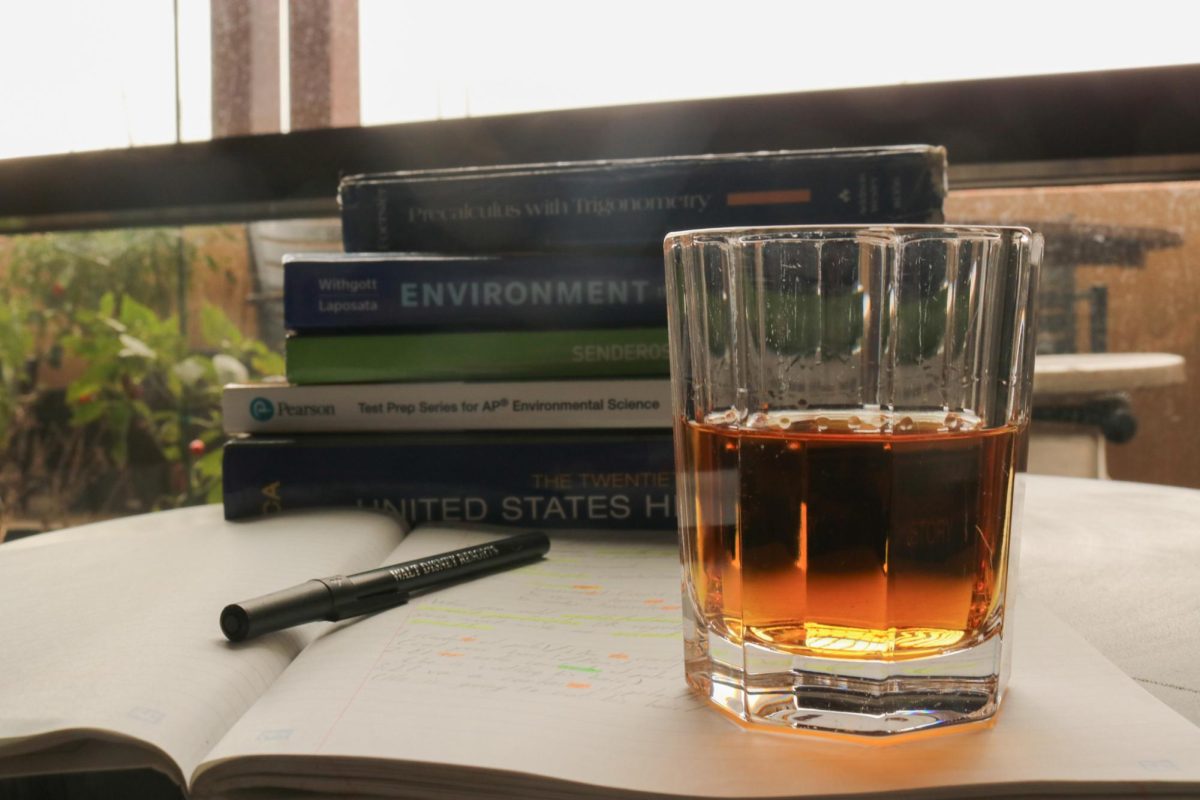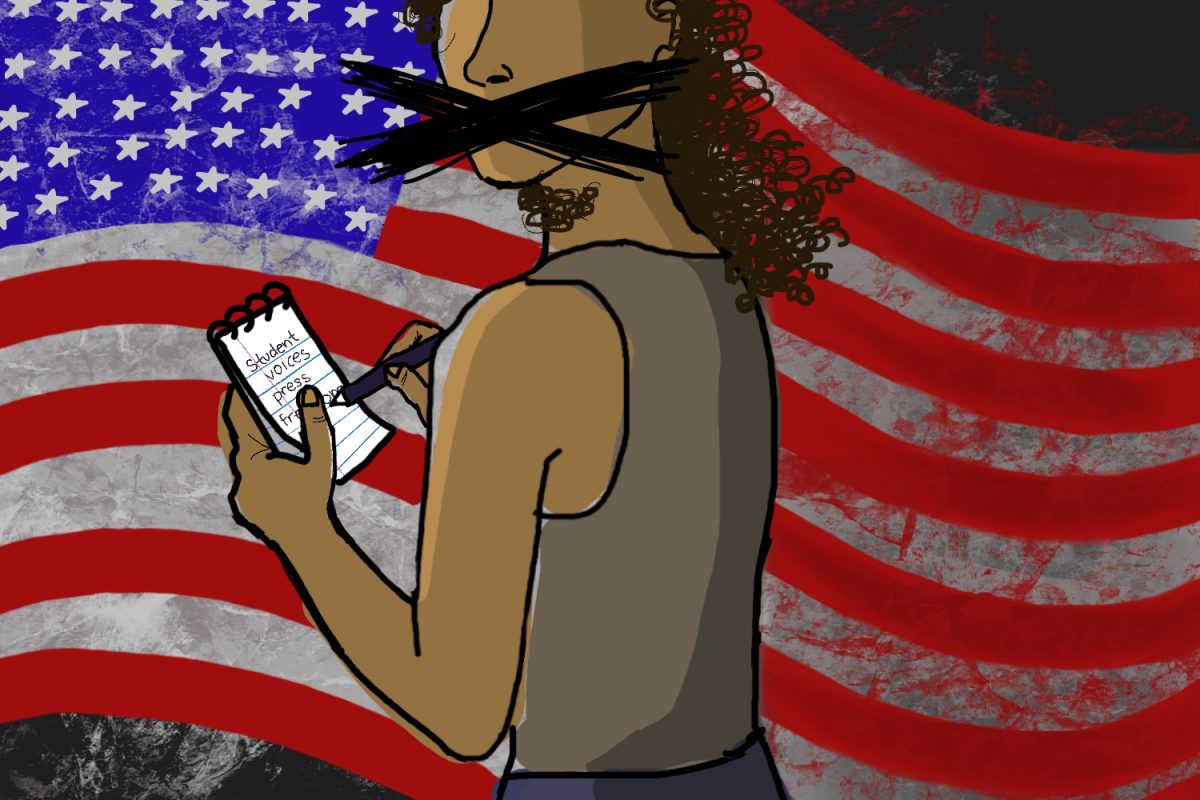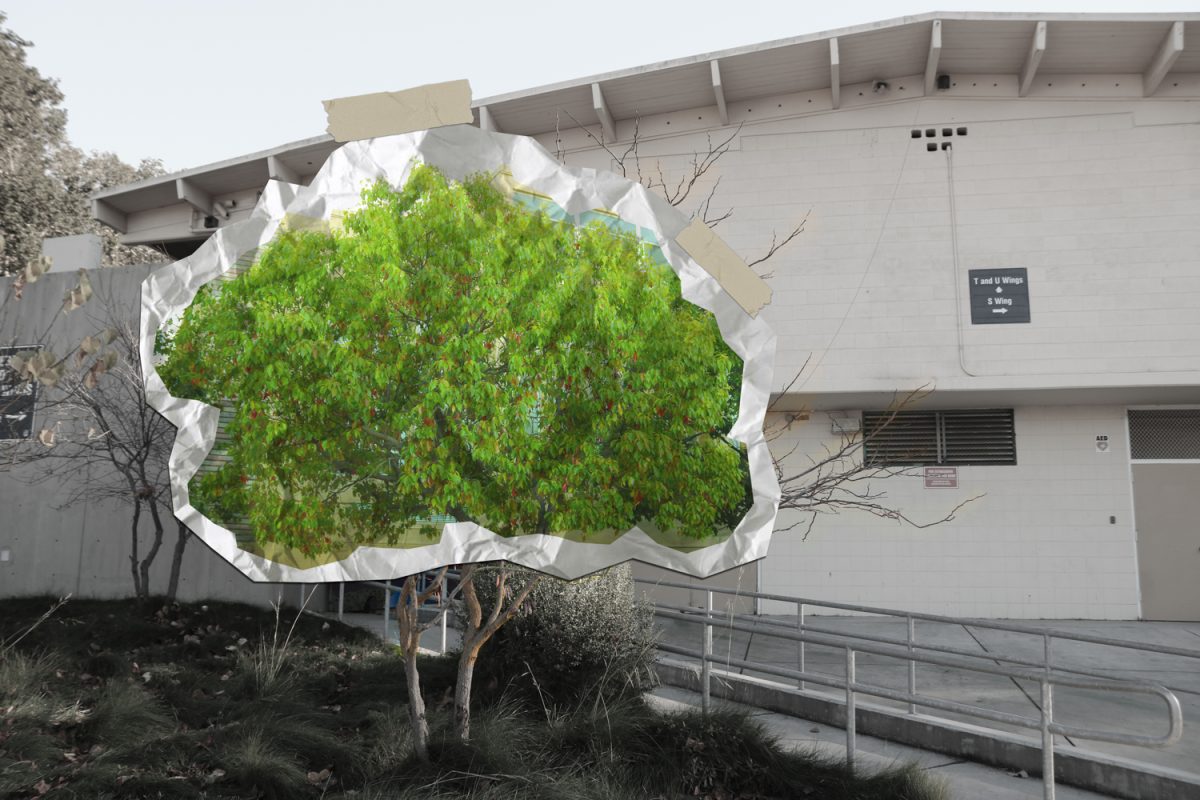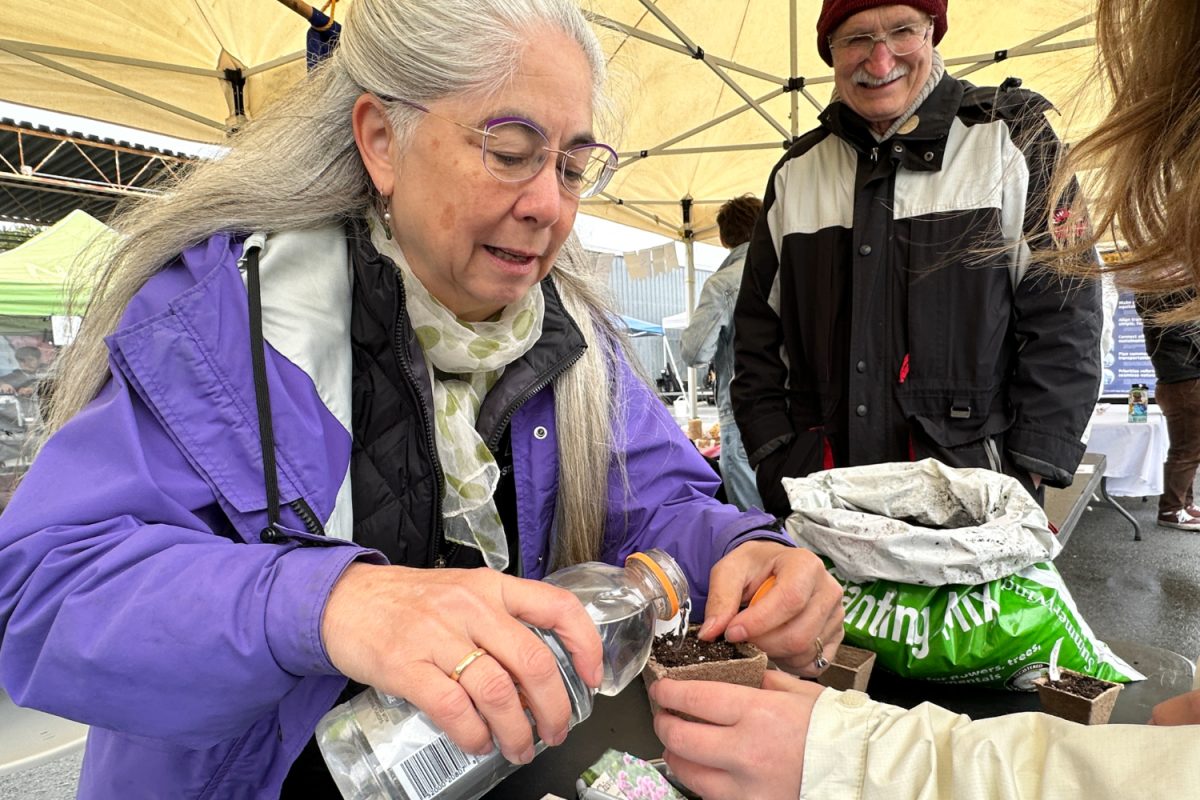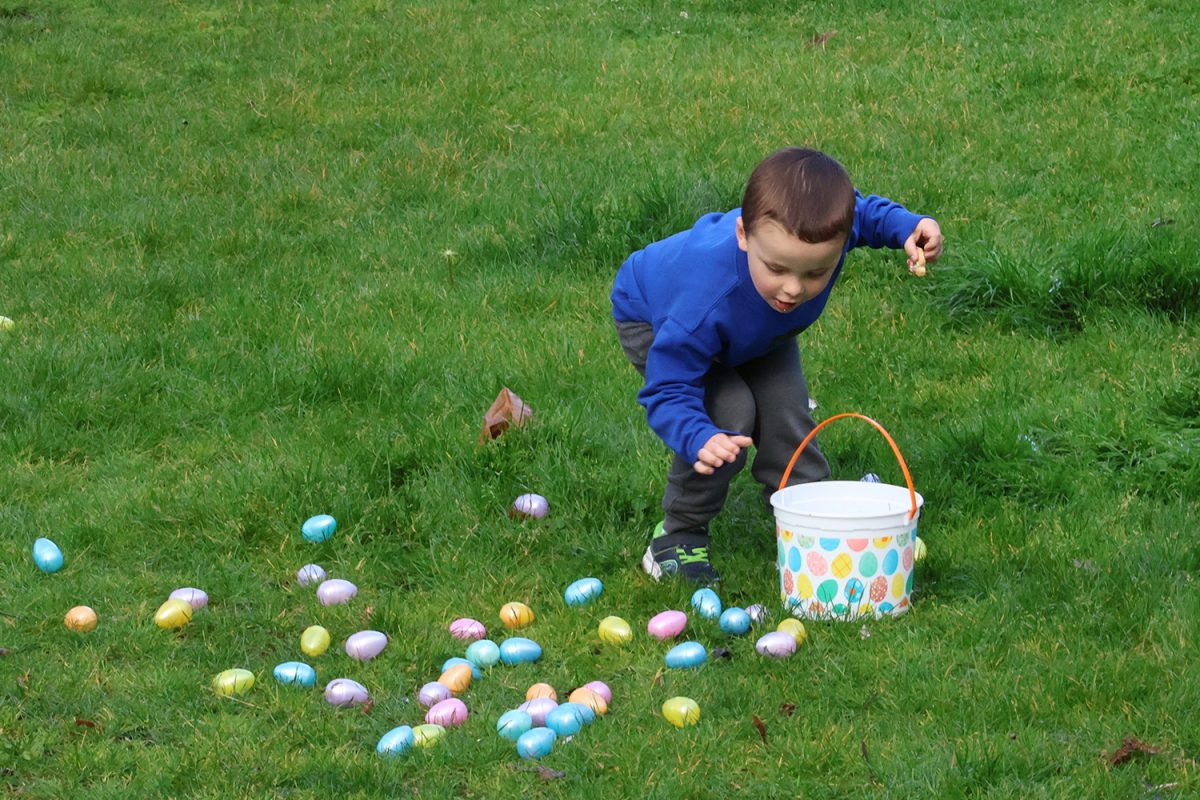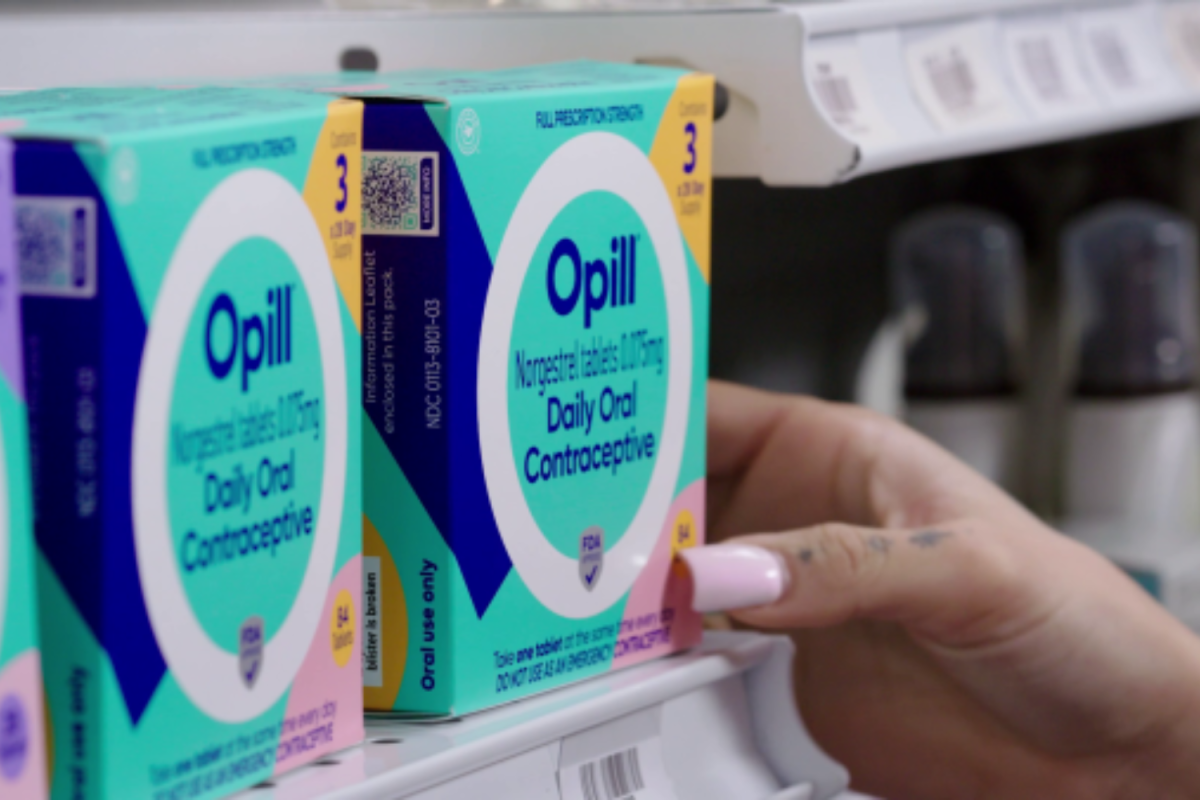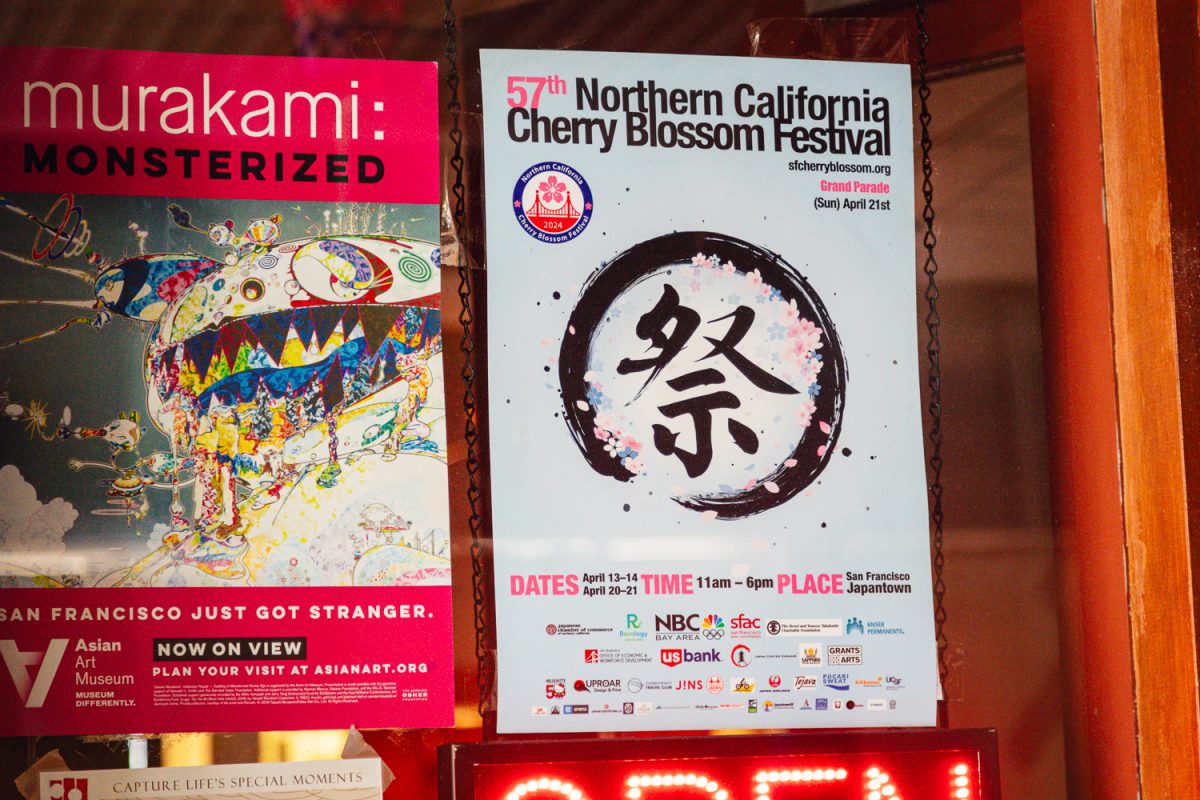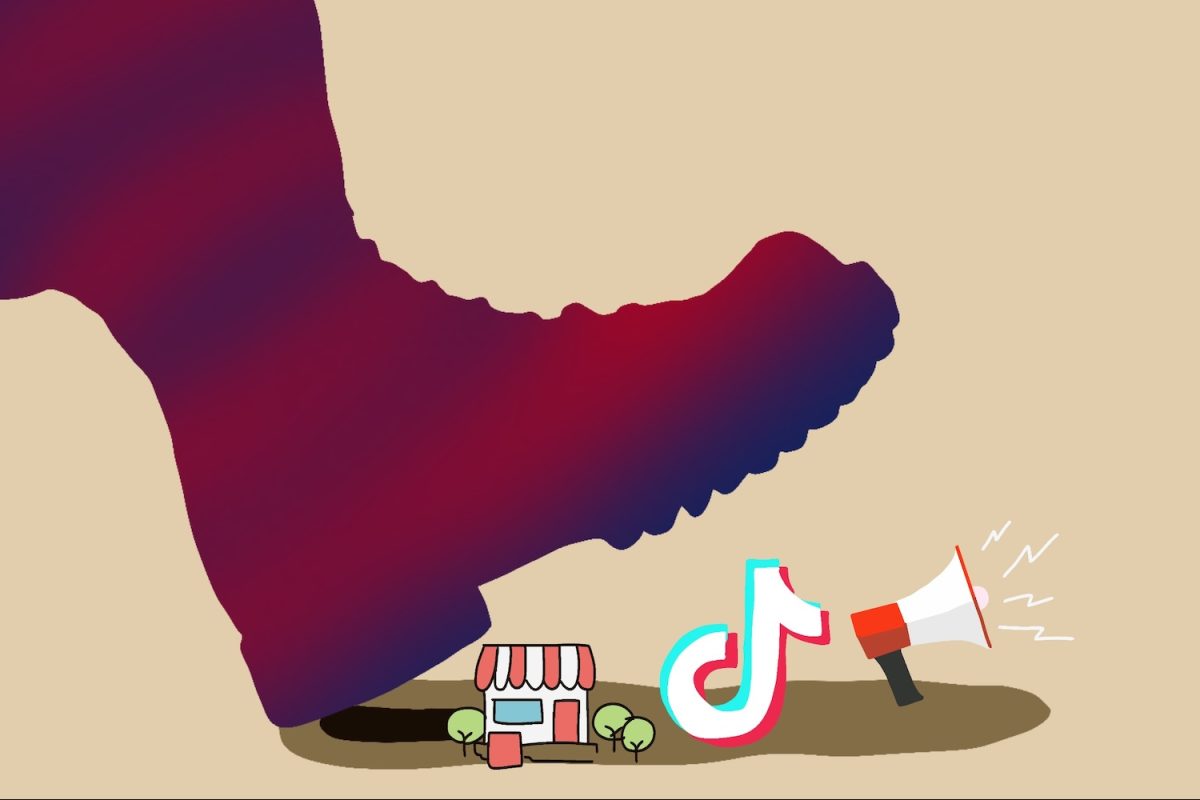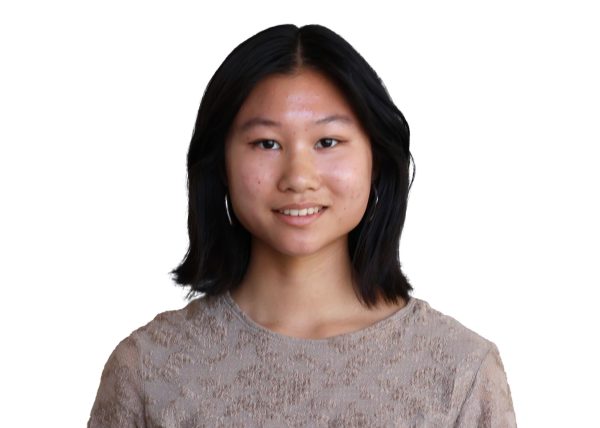As the sun rises over the South San Francisco Farmers Market, people stroll past the aisles of fresh produce and handmade goods. Some stop at a booth, intrigued by the big containers of soap lining its tables. Behind the booth stands a woman wearing a gray bucket hat and apron. Yellow crochet flower earrings dangle from her ears, and a red string with jade pendants hangs loosely around her neck. Karen Chaw, the owner of a mobile zero-waste store called The Daisy Refillery, cheerfully greets her customers.
A refillery is a refill shop where customers can bring their own containers or use one provided by the shop to fill with household and personal-care products.
The Daisy Refillery combines the service of a refillery while offering other low-waste and zero-waste products.
The blooming of The Daisy Refillery
Zero waste wasn’t a term Chaw used growing up, but environmentalism surrounded her life as a San Francisco native.
“My family wasn’t very financially well off, and it was learning how to be resourceful, how to save, and how to re-use what we already had,” Chaw said. “For me, that is my definition of sustainability.”
Chaw’s start in computer programming at 14 led her to major in computer science and a minor in bioinformatics at university.
“I became a full-time programmer, and as much as I loved programming, I couldn’t help but feel like I was a cog stuck in a system,” Chaw said.
I don’t lead a completely waste-free lifestyle, and I wanted to create a business that could be both accessible and inexpensive to as many people as possible.
— Karen Chaw
At the end of 2019, Chaw quit being a full-time programmer for her mental health. While she learned and consumed a lot of content about sustainability, zero-waste businesses, and refilleries during that time, she feels that The Daisy Refillery was a long time coming.
“I don’t lead a completely waste-free lifestyle, and I wanted to create a business that could be both accessible and inexpensive to as many people as possible,” Chaw said.
When Chaw had figured out most of the logistics and decided to register The Daisy Refillery as a business with the state of California, the first lockdown for the COVID-19 pandemic hit. Despite changing some plans, such as going mobile instead of having a storefront, The Daisy Refillery was officially up and running on Sept. 1, 2022.
Products and places
Chaw distributes her products to customers through local deliveries and booths at various markets. She also offers scheduled house calls or private refill sessions for individuals, families, and businesses to purchase her inventory at their chosen location.
According to Chaw, it would be counterintuitive to have products shipped to her and then have them shipped to her customers. So, she drives a van to deliver online orders personally. She had hoped to buy an all-electric vehicle but opted for a second-hand van within her budget.
“We’re trying to incentivize our customers to group our deliveries so that we can emit less carbon emissions,” Chaw said. “Their zip code is assigned to a zone, which is assigned to a date in the month, and they get a reduced fee of $1 as opposed to $3.99 for a direct delivery.”

According to the United Nations Environmental Program, single-use plastic products, or products thrown away after one use, account for 36% of plastic produced globally. 85% end up in landfills.
“We had a small business that we loved to work with, and they are absolutely dear to us, but unfortunately, they started using single-use plastic in one of their products,” Chaw said. “I couldn’t blame them for it, but as a business, everything needs to be free of single-use plastic.”
The Daisy Refillery’s refills include body, hair, skincare, and cleaning products.
“I wash all the containers customers donate with dish soap and my handy dandy bottlebrush. For the glass containers, I boil them in hot water for a good five minutes,” Chaw said. “I know that doing this is an extra step and a little more costly, but promoting my business as one that can be trustworthy when it comes to sanitization and ethics is very important.”
Chaw is also a vendor at eight to nine markets per month and embraces the opportunity to talk to those who visit her booth, overjoyed when customers return for refills or to repurchase an item.
“There are customers who have never heard of a refillery before, and I show them the process of weighing the container, picking out the perfect scent for their product, pumping in the refill, and calculating the price of the final weight,” Chaw said.
Like its refill products, The Daisy Refillery works with other brands to sell a broad range of zero-waste products not sold in jars. Apart from bulk items, such as toothpaste tablets and dry shampoo that go into containers and are sold by the weighted ounce, bar soaps in paperboard boxes and body oils in aluminum bottles are examples of unit items that are packaged in compostable or recyclable materials and priced individually.
Yumi Bennet, who runs Soap Art SF, provides The Daisy Refillery with a solid shampoo bar for dogs with sensitive skin called the WAG Bar.
“I want to share this product with as many dog owners as I can, and Karen helps me share it with an audience that I may not have reached otherwise,” Bennet said.
Like Bennet, brands must complete a vendor application form before selling their products with The Daisy Refillery. Chaw prioritizes local small businesses.
The Harris Poll conducted a global sustainability survey with Google Cloud in January 2023 and found that out of 1,476 executives across 16 markets, 72% believed that most organizations in their industry would be caught greenwashing if investigated thoroughly.
“My vetting process is super important because I want to ensure that the people I work with aren’t just greenwashing; that they know who their suppliers are, where their ingredients and materials come from, and how ethical and sustainable they are,” Chaw said. “I want to know that they’ve done their due diligence so that customers don’t have to do their own research.”
Chaw further maintains The Daisy Refillery’s dedication to being a genuinely sustainable business with its certification as a green business with The California Green Business Network and being a One Percent for The Planet member that donates 1% of its annual sales to environmental organizations.
Dreaming big
Through the tiring, yet fulfilling workload, Chaw tries to keep a work-life balance while managing all her responsibilities as a one-person business because she values time spent with her friends and family.
“I often feel a sense of imposter syndrome, and I have to remind myself that it’s enough that I am doing something to make a positive change for the environment,” Chaw said.
Seeing slow progress was another challenge Chaw initially experienced with The Daisy Refillery.
“In order to keep costs low, I can’t pay myself yet, so most of the revenue I make goes back into the business,” Chaw said.
But amidst keeping The Daisy Refillery running, Chaw dreams of opening a sustainability mall with different eco-friendly businesses, ranging from a shoe cobbler to a flower shop.
“For now, working towards a storefront, along with expanding our product line and having food item refills, are things I hope to do in the future,” Chaw said.
Chaw is grateful she’s gained so much knowledge from other refilleries and zero-waste businesses in the Bay Area, as well as thankful to have found a growing community of people who have come to love her business.
“Hopefully, our refillery community can influence big corporations to be more sustainable, make more ethical decisions, care more about their supply line, and take responsibility for the products they create,” Chaw said.

